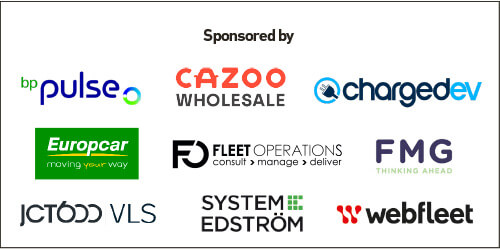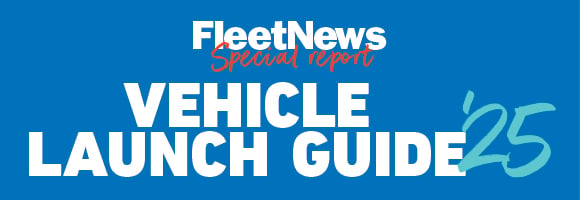This feature was taken from our comprehensive Guide to Choosing the Right Supplier. Click here to read the full special report.
You’ve been through an exhaustive tendering process, picking through piles of documents and carrying out interviews, and have now granted the contract to the successful supplier. Job done, yes?
Actually, no. The job has just begun.
The strength of partnerships between fleets and their suppliers is paramount to a successful relationship.
If traditional purchasing was driven by a focus on cutting costs and boosting short-term profits, today’s strategic procurement is shifting the emphasis from transaction to relationship, concentrating on securing long-term value.
It’s a development that is forcing fleet decision-makers to decide which products and services can be treated as ‘widgets’ and bought for the cheapest price and which are so mission-critical that the quality of service makes a material difference to their operations – resulting in regular service level agreement meetings and key indicators to monitor performance.
However, customer honesty is crucial – and often underappreciated – to receiving high levels of service.
In an academic paper, Professor Lynette Ryals from Cranfield University, identified ‘supplier delusion’, in which providers have a much higher opinion of the quality of their relationship with a client than the client does.
The reason? Customers tend to give overly-flattering reports about their suppliers. And they often switch them without any warning about under-performance, giving the incumbent no opportunity to address concerns.
Indeed, Ryals notes that “customer loyalty is only 75% even at the highest levels of satisfaction”.
She suggests that customers are much more likely to receive world-class service if they behave like world-class customers.
The Chartered Institute of Procurement & Supply (CIPS) says building a trusted relationship with suppliers is a critical skill for procurement and supply chain specialists, one that needs nurturing – and it has to work both ways.
Performance reviews and regular meetings will keep the conversation flowing, but it is important that fleets do not beat up suppliers on price.
Nailing a supplier down on price, for example, may reduce the scope for flexibility further down the line if circumstances change. As the pandemic has illustrated, flexibility in extending contracts, delaying new orders and even suspending payments can be extremely useful.
“It stores up problems further down the line,” says CIPS.
Honest conversations
Good communication extends from honest day-to-day conversations between operational fleet teams and their supplier counterparts to strategic review meetings, but it also encompasses candid “off the record” discussions between fleet chiefs and their opposite numbers at providers to iron out problems that risk escalating into more serious issues.
If fleets have to resort to the terms and conditions of a contract to get what they want, the relationship is probably doomed beyond recovery.
Business relationships that have survived the constraints and
pressures of the pandemic will have been built on solid foundations. CIPS recommends developing supply agreements jointly, with transparency a priority as both sides disclose their issues and challenges.
Innovation should be included as a key specification with partners expected to provide evidence of where they have added value to elevate their product or service above those of competitors.
Delivering the basic terms of an agreement is not sufficient to retain business, particularly with larger corporates and those with professional fleet managers.
Abandoning adversarial relationships, decision-makers at larger fleets are keenly aware of how the performance of a supplier can reflect on their own departments.
Stewart Lightbody, deputy chairman of the Association of Fleet Professionals (AFP), says: “I want to work with suppliers who understand me and what my organisation is trying to achieve and who buy into the same thing. Some of my best and longest relationships I have seen as extensions to my own team because what they do can impact directly and indirectly on how my internal customers see me and my team’s performance.”
An open, trust-built relationship allows a fleet to share its objectives and disclose its budgetary constraints, so both parties can work together on affordable solutions.
In return, it requires the fleet to understand the provider’s business, how they want to operate, what schemes and mechanisms they use, and how they make their money.
This involves treating cost and value as two separate entities in the decision-making process and attributing a similar weight to both.
Inevitably, there are in-contract
incidents where the strength of the relationship gets tested. A vehicle recall, for example, could see an entire batch of vehicles grounded, at which point a supportive manufacturer would step up and provide temporary replacement vehicles while they deal with the issue.
It is also vital to build relationships with businesses that align comfortably with a company’s own strategic corporate aims in areas such as sustainability, diversity, equality and inclusion.
Having supplier partners that share your company’s brand values will help both organisations achieve their business goals with a long-term
relationship.
An eight-point plan to better supplier relationships
The Chartered Institute of Procurement & Supply (CIPS) explains how to build and maintain a successful partnership between fleet and supplier:
- Pre-contract – meet up and visit a supplier’s premises and develop the agreement together, honestly and with transparency in mind, where both sides share their issues and challenges too.
- Establish a clear commitment from both parties on what is expected from each side at the starof the relationship to avoid future misunderstandings. Draw up a clear, concise and realistic contract.
- Organisations seeking differentiation in the market will want to look for true value across the supply chain, not just cost. Beating down suppliers on price is not ethical or responsible procurement and stores up problems further downthe line.
- Maintain regular contact: face-to-face communication, regular site visits and frequent performance reviews will keep conversation flowing.
- Keep reviewing service levels on a regular basis.
- Share data – it’s an important aspect of transparency and supporting each other.
- Work collaboratively – have open discussions about where savings could be made without compromising on quality or other important aspects of the partnership.
- Try to understand each other so well that one side can predict how the other will react to a particular challenge, creating a symbiotic relationship.
The Choosing the Right Supplier special report is sponsored by: FMG, BP Pulse, Fleet Operations, JCT600 VLS, System Edstrom, ChargedEV, Cazoo, Europcar and Webfleet.





















Login to comment
Comments
No comments have been made yet.